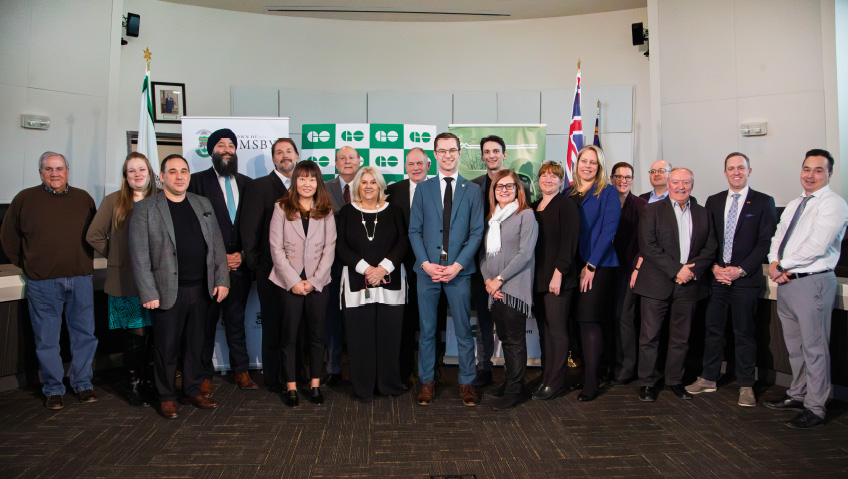Traditional training programs might work for simple transactional sales, but when you’re building long-term customer relationships that yield $500K deals throughout the year, generic roleplays and “dusty binders” don’t cut it, says Portage Sales Founder and President Peter Meyers. “Today’s B2B leaders need training that reflects their reality—multi-threaded relationships with 10 to 15 stakeholders, and buying decisions that involve engineering, procurement, operations, and finance.” Portage Sales, by contrast, offers “training on steroids,” that produces measurable results.
Portage Sales, headquartered in Toronto, helps companies in the business-to-business (B2B) sector enhance their performance and revenue. To this end, it delivers comprehensive online and in-person training and enablement for B2B clients regarding sales strategies, client communication, leadership, and the effective use of advanced tools such as artificial intelligence (AI). For companies in traditional industries facing margin pressure and increasingly complex buying processes, the company’s cutting-edge approach differs immensely from traditional corporate training.
Meyers does not believe brief, on-off training works and prefers to engage in months-long relationships with clients. “We don’t just ‘set it and forget it,’” says Meyers. Through long-term commitments, company trainers can gain a clearer sense of a client’s culture, challenges, and business performance—particularly crucial for complex B2B sales where relationships can span years. He compares this comprehensive training process to creating with Lego® blocks: just as each piece adds to the whole, every Portage session builds on previous lessons. “What that means is, we really pay attention to what situations [the clients] run into either with an existing customer or a new prospect in the field, and we build that right into our programs,” rather than using rigid instructional templates.
This philosophy stems from Meyers’ own corporate experience. He started out in the Procter & Gamble marketing department, then moved into B2B sales, managing teams across the United States, before working at Air Miles. “I left corporate because, frankly, I wanted to focus on getting more done and making more of a difference with end-customers,” he explains. When he launched Portage Sales in January 2015, he quickly recognized that companies in both tech and traditional industries faced unique sales challenges that generic B2B training couldn’t address.
Portage runs a revenue Leadership Academy as well as a range of programs delivering training and revenue enablement. A new Portage service dubbed Revenue AI has been added to the fold and portends huge opportunities.
Clients in the Leadership Academy engage in peer-to-peer workshops, training sessions, and one-on-one coaching to gain insights about communication, personal development, and being a leader. For many companies, this often means helping top individual contributors transition into sales leadership roles. Stress is placed on developing effective coaching skills—an important attribute given that organizations with strong sales enablement programs see 84 percent of sales reps achieve their quotas, compared to just 29 percent overall quota attainment industry-wide, according to recent industry research.
“Coaching is by far the best way to change behaviour—providing feedback [to staff and] having difficult conversations,” explains Meyers. “I’ve seen too many companies promote their top individual contributor into sales management, then wonder why their pipeline stalls. Top performance doesn’t automatically create coaching skills, especially when you’re managing teams that sell complex solutions to sophisticated buyers.” One client, a technology company, saw their sales team confidence increase so dramatically that “it was basically night and day in terms of their evolution and professional development,” according to their leadership.
Leadership Academy clients also learn the benefits of “having a clear strategy, making and maintaining clear expectations,” for B2B team members, he continues. This becomes especially critical when sales teams are managing long-term accounts where a single misstep can jeopardize relationships worth hundreds of thousands of dollars annually. The results speak for themselves: one services client saw a 50 percent increase in overall sales during the pandemic.
The academy also focuses heavily on emotional intelligence—the ability to understand and respond to your own emotions and those around you. This becomes particularly valuable when navigating complex stakeholder relationships that can involve everyone from plant managers to CFOs. And leaders are also encouraged to maintain their momentum after training ends. “We’re not going to be around forever with our customers; we know that. We’re going to be around for four months, six months. The rest of the time, the leaders need to carry the weight,” says Meyers.
Portage’s training and revenue enablement programs, meanwhile, include sessions about growth plans, lead generation, conducting outreach, improving value pitches, and filling in skill and talent gaps on a team. For companies dealing with commoditized markets, these programs focus heavily on differentiation strategies and consultative selling approaches that move conversations beyond price. Rather than generic case studies, clients work through actual scenarios they’re facing—whether it’s a stalled negotiation with a major account or navigating a complex RFP process involving multiple decision-makers.
Skills enhancement is also on the agenda, and this can entail getting participants to simply “ask better questions when they’re working with customers,” says Meyers. One client learned to “actively listen to everything that’s going on,” and found they could uncover growth opportunities they’d been missing, leading to deals with significantly larger brands.
The company’s thought leadership extends beyond training through its podcast series and webinars, covering critical topics such as Gaining Sales Productivity from AI, Why Most Sales Teams Miss Quota, and Bridging the Sales and Marketing Divide.
As of late, the company has been spending a great deal of time outlining the pros and cons of artificial intelligence. If there is a prevailing theme in Portage’s instruction, it is the importance of using AI as a tool, not a crutch. While B2B teams might already be experimenting with AI programs, “there’s a real dichotomy between experimenting and actually getting value out of it,” says Meyers. “I would say only 20 percent, based on our experience so far, are getting good and substantive value out of AI or the technology transformation of their business.”
Given the technological expertise of its employees, Portage Sales is “uniquely equipped to not only understand technology but know what the heck to do with it—how to apply it. How to turn it into value,” he continues. For companies with complex sales processes, this goes far beyond basic automation. Portage helps clients use AI to analyze lengthy sales cycles for pattern recognition, create dynamic proposal generation that adapts to different stakeholder priorities, and develop predictive models that identify when deals might be at risk. One SaaS client uses AI to automatically tailor software demos for different buyer personas within the same organization.
While the company excels at AI and conducts many programs online, Meyers is very aware of the importance of human connection. He points out that there are certain advantages to in-person training: “You can read the room. You understand what’s going on. You have rapport. You have connection, and we’re able to run a better program that has higher engagement,” he shares.
This agility is particularly valuable for companies whose markets are constantly evolving—whether due to supply chain disruptions, regulatory changes, or shifting customer demands.
Portage Sales has a global reach but primarily works with clients in North America. The team is fully virtual and gathers regularly at co-working facilities.
Today, 10 people work at Portage, all of whom were carefully selected by Meyers.
Portage values pragmatic innovation, openness, and tailored expertise, all to drive lasting change through people. “I feel really fortunate,” says Meyers. “I have a great team, and we’ve worked hard to find each other. I am very happy to be growing as a company. A lot of companies don’t survive. I’m very proud of that.”
Certainly, many of Portage’s clients seem impressed with what the company has to offer and the improvements they have seen in their own employees. Clients include EECOL, DUCA, Hubbell Canada, LBi Software, and Rheem, and most business comes from referrals or repeat customers. The results are dramatic: one technology company achieved a 50 percent increase in overall sales during the pandemic and was on track for another 25 percent increase the following year. Another client signed two major sports teams after applying Portage’s methodologies, with deals that were “significantly larger in size” than previous agreements. A distribution company saw a 40 percent improvement in deal closure rates by training their team to navigate complex multi-stakeholder buying processes.
Going forward, Meyers has no interest in switching his focus from B2B consultative business models. “It will always be B2B. To me, that’s what I’m passionate about. It’s what the whole team is experienced in,” he says. Within a couple of years, he hopes to “have embedded AI more and more into the practice of the business. The big one for us right now is revenue AI.” But regardless of the technology evolution, the core mission remains unchanged. “We’ve used technology; we’ve used our know-how in combination to do some things that are different and truly innovative. That’s the piece that gets me excited. I think as a team we can do even more of that in the next five years—helping B2B firms not just improve their performance, but achieve the kind of sustained growth that creates lasting competitive advantage.”






